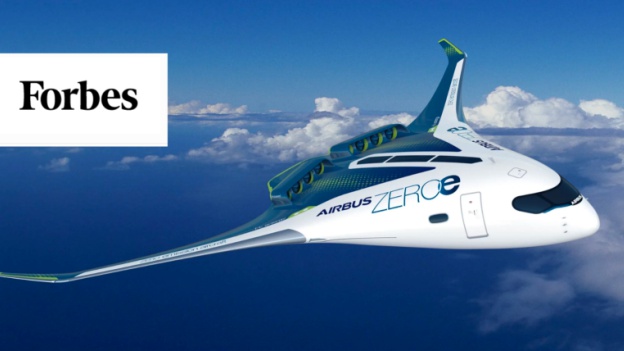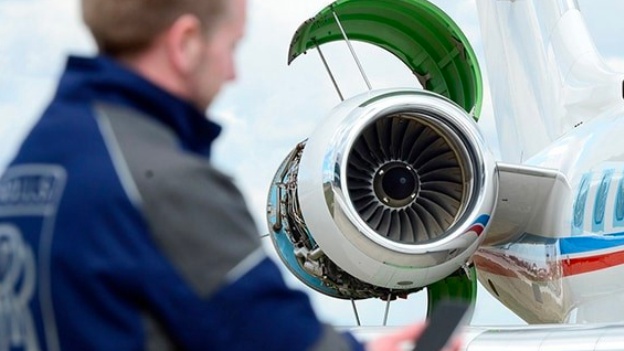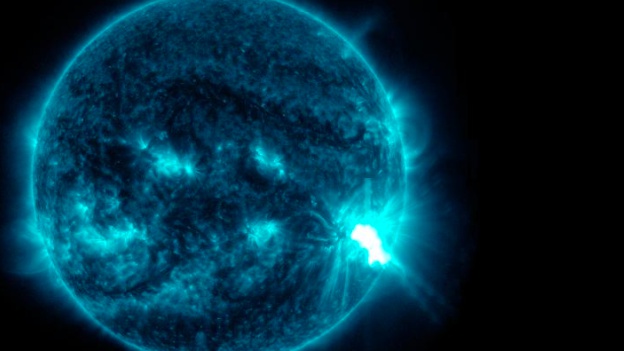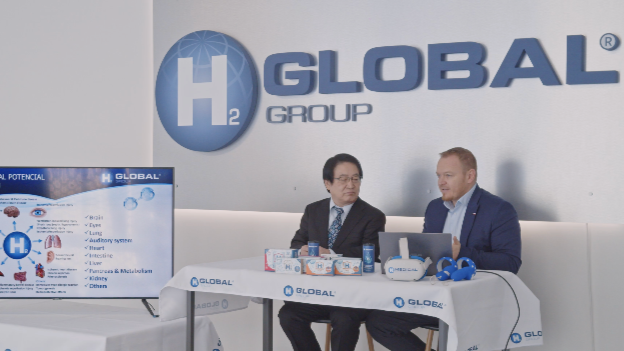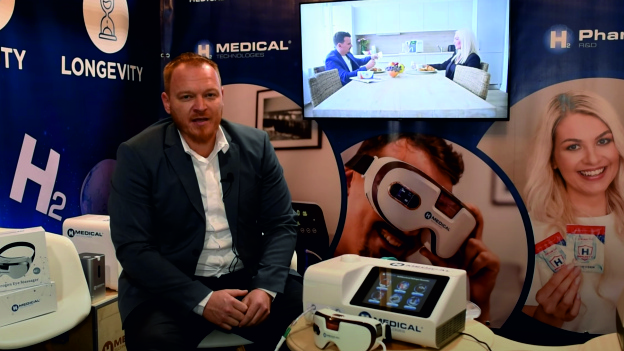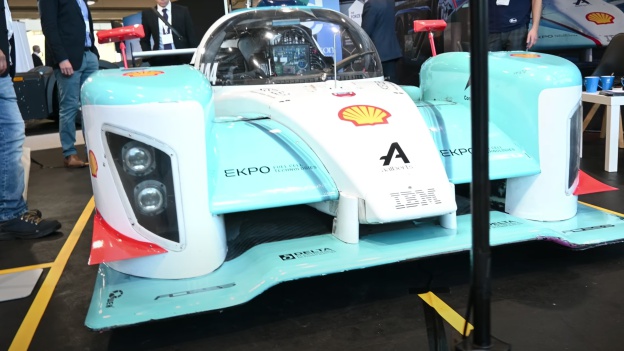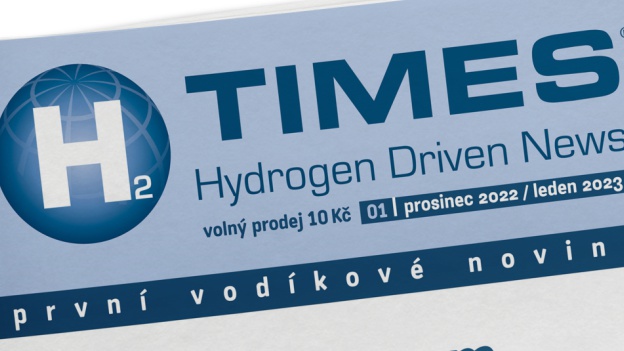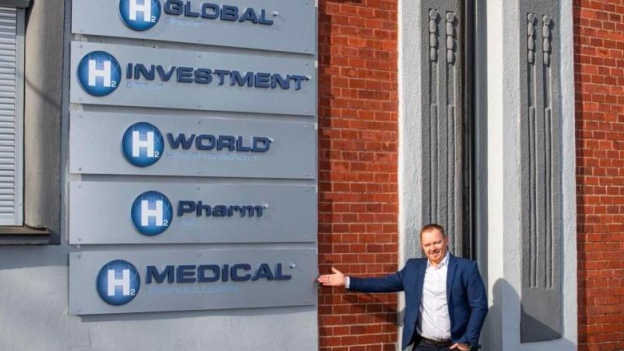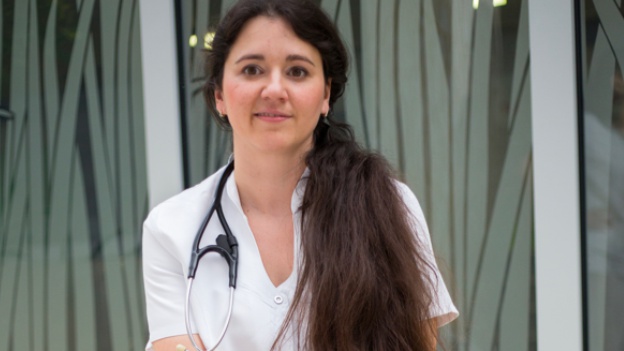Professor Shigeo Ohta is a world-renowned scientist and pioneer in the field of hydrogen technology. Known as the discoverer of the antioxidant effects of molecular hydrogen on human cells, Professor Ohta has made significant contributions to the research and development of new therapies. His most recent achievements include patents for a revolutionary treatment of Alzheimer's disease (AD) using molecular hydrogen, which opens up new possibilities in the field of medicine and prevention of neurodegenerative diseases. His work not only pushes the boundaries of science, but also brings hope to millions of people around the world.
Professor, you have been involved in mitochondrial research for many years. What fascinates you most about your field and what challenges have you had to overcome during your career?
I started my mitochondrial research with basic research, but later in 1985 we noticed the presence of mitochondrial disease. In the course of researching mitochondrial diseases, we learned that basic science leads to the development of drugs to treat these diseases, and in the next step we learned that mitochondria are not only related to mitochondrial diseases, but also to our health. Regarding hydrogen medicine, from the beginning I want to question the most important application for human well-being. That is, using molecular hydrogen to overcome the most important problems, such as cancer and dementia.
What was the path to molecular hydrogen research?
Mitochondria are organelles that generate bioenergy, but they also produce reactive oxygen species as a side effect. Reactive oxygen species oxidize and damage cellular components, causing various diseases. So I was interested in how to control their toxic effects of reactive oxygen species. However, the story is not that simple. Some reactive oxygen species have specific physiological roles. If antioxidants were to remove all reactive oxygen species, they would be more harmful than beneficial. After extensive research, I found that molecular hydrogen is the ideal antioxidant because it does not remove physiological reactive oxygen species. In other words, molecular hydrogen should not have adverse effects.
How long have you been studying Alzheimer's disease and why did you become interested in this disease?
I hoped to overcome this most serious problem through science. I focused on the involvement of mitochondria in various diseases. I began studying Alzheimer's disease as one of my research subjects immediately after I became a professor at Nippon Medical School in 1994. I have been studying this disease for 30 years. At that time, it was discovered that one of the risks of Alzheimer's disease is oxidation by reactive oxygen species. As I mentioned, most reactive oxygen species are produced in mitochondria.
What results have you and your research teams achieved?
Based on epidemiological surveys, I found that one genotype that codes for a mitochondrial protein is at risk for Alzheimer's disease and that people with this genotype have high oxidative stress, and I confirmed this using cultured cells. I also genetically engineered a mouse model for dementia. It is believed that the main cause of Alzheimer's disease is the accumulation of amyloid beta protein. However, the results of our research pointed to the possibility that dementia can be caused even if amyloid beta protein does not accumulate. This study meant that Alzheimer's disease can be prevented or improved without reducing the accumulation of amyloid beta protein. I used this mouse model to evaluate the effect of hydrogen water on dementia and found that drinking hydrogen water suppressed cognitive decline in the mouse model. This study led to a clinical trial.
Do you have a patented treatment for AD? Can you describe it to us?
I have two granted patents and one pending patent. In reality, it is impossible to grant one patent that completely covers Alzheimer's disease. Therefore, one patent has specific limitations for one or more diseases. The first patent covers hydrogen water, hydrogen supplements, and hydrogen gas for prevention and improvement, but this is limited to subjects at genetic risk. The second patent covers only hydrogen gas with the limitation that Alzheimer's patients have experience with other drugs. The third patent covers only hydrogen gas inhalation. Patients who inhaled hydrogen improved for half a year without further inhalation. These patents show that hydrogen water can prevent Alzheimer's disease and hydrogen gas can treat Alzheimer's disease after it has developed.

Why did you decide to sell your patent to the Czech company H2 Global Group
Maintaining a patent requires a lot of money, so it is difficult to maintain it at your own expense. The patent rights were transferred to H2 Global Group only for the costs that were necessary to establish the patent. The patent rights were transferred to H2 Global Group free of charge, not sold. Since H2 Global Group deals with a wide range of hydrogen-related products, such as hydrogen water, hydrogen supplements, and hydrogen generators, I believe that H2 Global Group will utilize these patents. And since I am the vice president of H2 Global Group, it would not be appropriate to transfer or sell the patent rights to other competing companies.
The population is aging and the number of people with Alzheimer's disease and various forms of dementia is increasing. How do you see the application of hydrogen therapy in the future?
The number of Alzheimer's patients worldwide is rapidly increasing. Due to the decline in overall functionality and cognitive functions, many patients with terminal Alzheimer's disease require continuous care regardless of the situation, which places a great burden on caregivers and makes it difficult to function in society. However, the development of Alzheimer's disease treatment has not been very successful so far. I hope that hydrogen will contribute to the prevention and treatment of Alzheimer's disease and hydrogen medicine will save the aging society worldwide.












